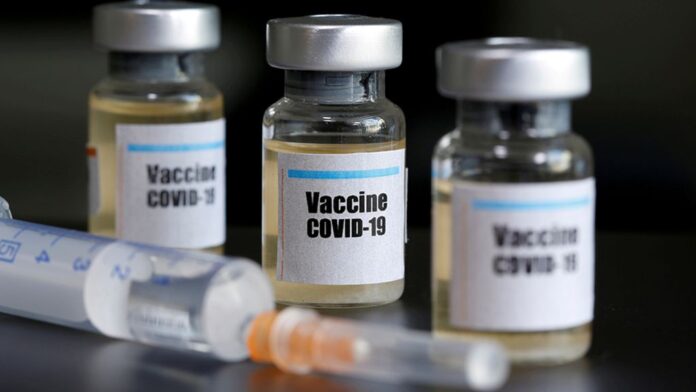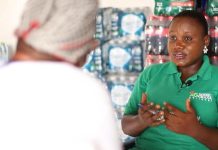While expecting Covid-19 vaccine rollout and/or treatment, there are several things governments, healthcare professionals, scientists, and citizens could do to limit further spread and loss of lives. The world is making progress, but we cannot become complacent! Governments need to be honest and transparent with their citizens and listen to the experts. Scientists and healthcare professionals need to be willing to share information and experiences with their colleagues around the globe. It’s time for some healthcare professionals like Pharmacists to step up and embrace other responsibilities. We are in this together!
Lessons from previous outbreaks clearly showed that when health systems are overwhelmed, mortality from vaccine-preventable and other treatable conditions increase drastically. During the 2014-2015 Ebola outbreak, the increased number of deaths caused by measles, malaria, HIV/AIDS, and tuberculosis as a result of health system failures exceeded deaths from Ebola.
“The best defense against any outbreak may be a strong health system. COVID-19 is revealing how fragile many of the world’s health systems and services are, forcing countries to make difficult choices on the way to best meet the requirements of their people” stressed WHO Director-General Tedros Adhanom Ghebreyesus.
Countries should identify essential services that will be prioritized in their efforts to maintain continuity of service delivery and make strategic shifts to ensure that increasingly limited resources provide maximum benefit for the population. They also must accommodate absolute best standards in precautions, especially in hygiene practices, and the provision of adequate supplies including personal protective equipment. This requires robust planning and coordinated actions between governments, health facilities and healthcare professionals.
Some examples of essential services that cannot be sacrificed because of COVID-19 include routine vaccination; reproductive health services including care during pregnancy and childbirth; care of young infants and older adults; management of psychological and mental conditions, non-communicable diseases and infectious diseases like HIV, malaria, and TB; critical inpatient therapies; management of emergency health conditions; auxiliary services like basic diagnostic imaging, laboratory services, blood bank services, among others. It is expected that well-organized health systems are still able to provide equitable access to essential service delivery throughout an emergency, thus, limiting direct mortality and avoiding increased indirect mortality.
In some countries, Pharmacists are helping with vaccinations and giving injections. There may be no better time to utilize such readily available human resources in countries where these professionals aren’t providing such services, e.g., Ghana. According to a 2016 report by the International Pharmaceutical Federation (FIP) on pharmacists’ impact on vaccination, Pharmacy-based vaccination is available in a minimum of 36 countries and territories (covering nearly 1.8bn people) and has been proposed or is undergoing development in a further 16.
A recent study that explored some Saudi community’s needs and preferences associated with community immunization services demonstrated the necessity for community pharmacy immunization services. Pharmacists improve direct access to vaccinations and serve in many important roles within the vaccination process in the United States of America. According to a government report on the 2018-2019 flu vaccinations in Canada, Pharmacies were the main vaccination centers, accounting for 35% of all flu vaccinations.
Pharmacists are medicine experts, front-line healthcare providers, and an integral member of the healthcare delivery team in every country. Pharmacists are the most readily accessible health care providers and find themselves in a perfect position to provide immunization services. Patients can easily reach out to pharmacists for education, counseling, monitoring, and administration of the vaccines. Expanding their scope of practice as vaccinators will ultimately further their contributions to public health.
Another area that requires massive attention and support is the impact of COVID-19 on the psychological state/mental health of the people, especially frontline healthcare workers. Psychological and mental health problems are common and this could be due to financial pressures, unexpected difficulties, unemployment, or stressful situations at home and work. We urgently need mental health services and resources (e.g., free helplines or text lines) across the length and breadth of nations or communities, especially for healthcare workers who are at the forefront in the fight against COVID-19.
Here are some tips to help reduce stress and promote wellbeing!
₋ Pause. Breathe. Reflect
₋ Take some slow breaths: in through your nose, then slowly expire. Slow breathing is one of the many ways to lower stress because it signals to your brain to relax your body.
₋ Notice how you are feeling and what you’re thinking, without judgment. Instead of responding or reacting to those thoughts or feelings, note them, and slowly allow them to go.
₋ Connect with others – reach out to people you trust can help. Maintain regular contact with people near you and be ready to voice out how you are feeling and share any concerns that you may have.
If you’re a frontline health care provider, please put it in your mind that you simply aren’t the sole savior of the COVID-19 world. You will lose some patients despite your best efforts, and you will also have saved some. After work, let your mind celebrate the recoveries! Keep to a healthy routine.
A few tips to keep you going!
₋ Get up and retire to bed at similar times daily.
₋ Maintain acceptable levels of private hygiene.
₋ Eat healthy meals at regular times.
₋ Exercise regularly. Just do 3-4 minutes of intense physical movement
₋ Apportion time for working and time for resting.
₋ Make time for doing the items you enjoy.
₋ Take regular breaks from on-screen activities.
₋ Don’t use alcohol and medicines to handle fear, anxiety, boredom, and social isolation
₋ Be kind to yourself and others.
₋ On difficult days, don’t expect too much of yourself.
₋ Accept that you’ll be more productive on some days than others.
₋ Try to reduce the amount of time you spend to observing, reading, or listening to news that produces feelings of hysteria or distress.
₋ Seek the most recent information from trusted sources at specific times of the day.
₋ Helping others is also good for your general wellbeing.
₋ Reach out for help if need be, and don’t hesitate to seek professional help.
Stay informed, be prepared, and follow public health advice!!!
Coronavirus may never go away!!!
Victor Wutor
PhD, MBA, MSc, B.Pharm (Hons)
vcwutor@gmail.com
Lethbridge, AB
CANADA












































